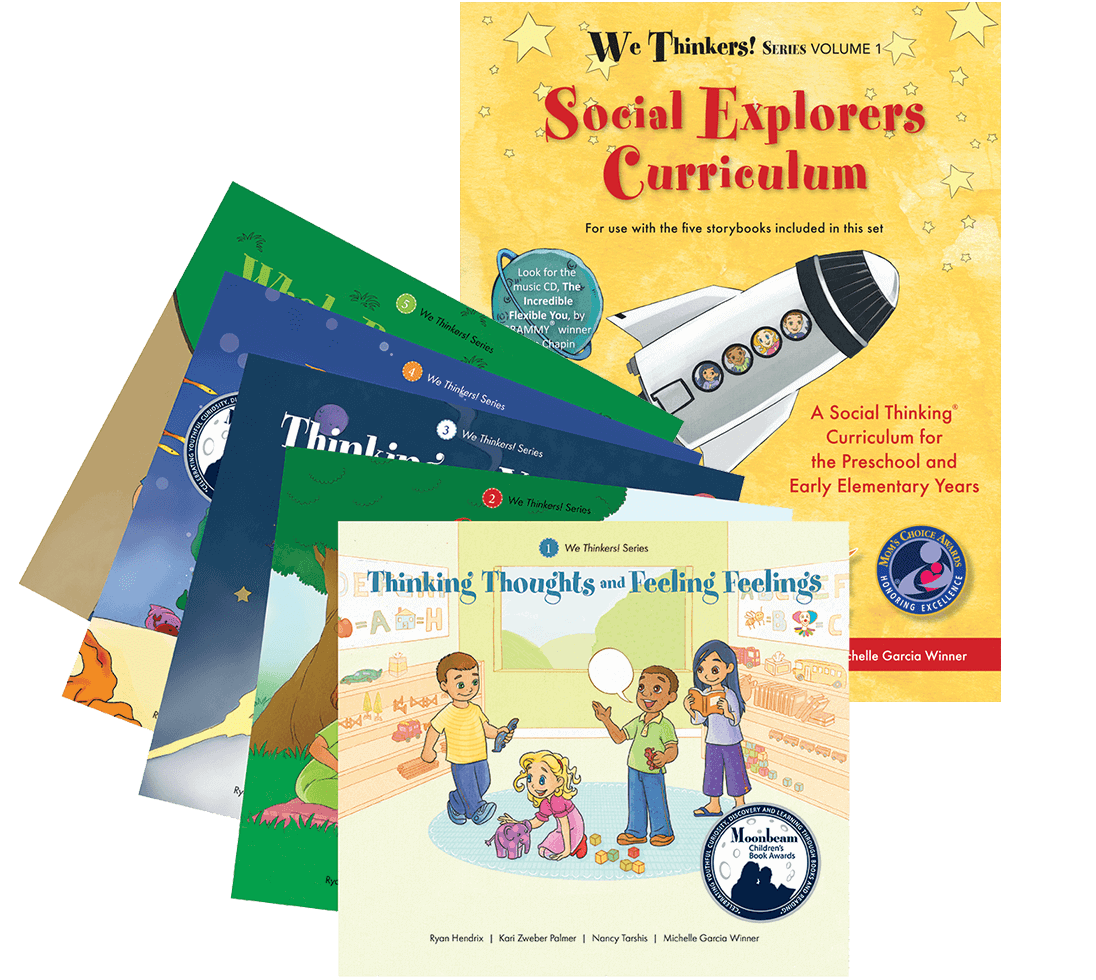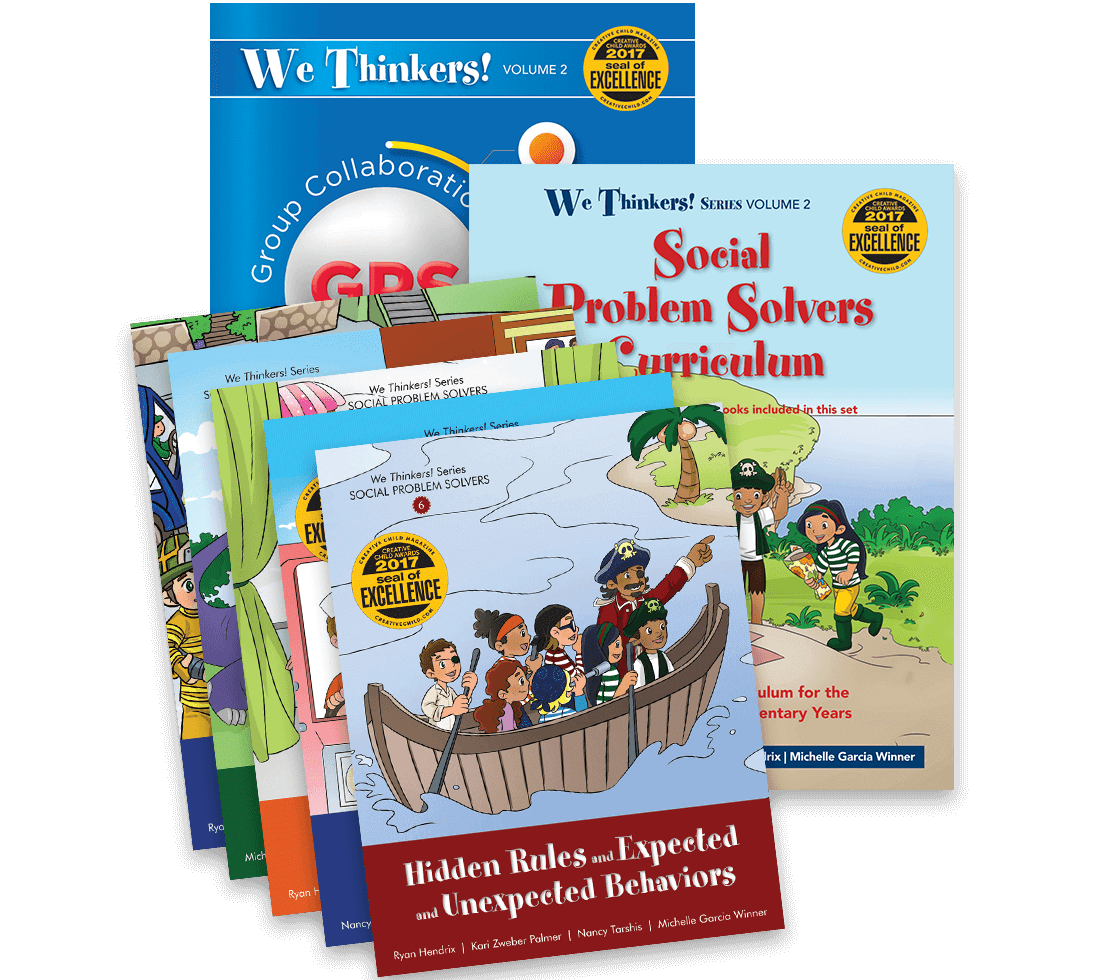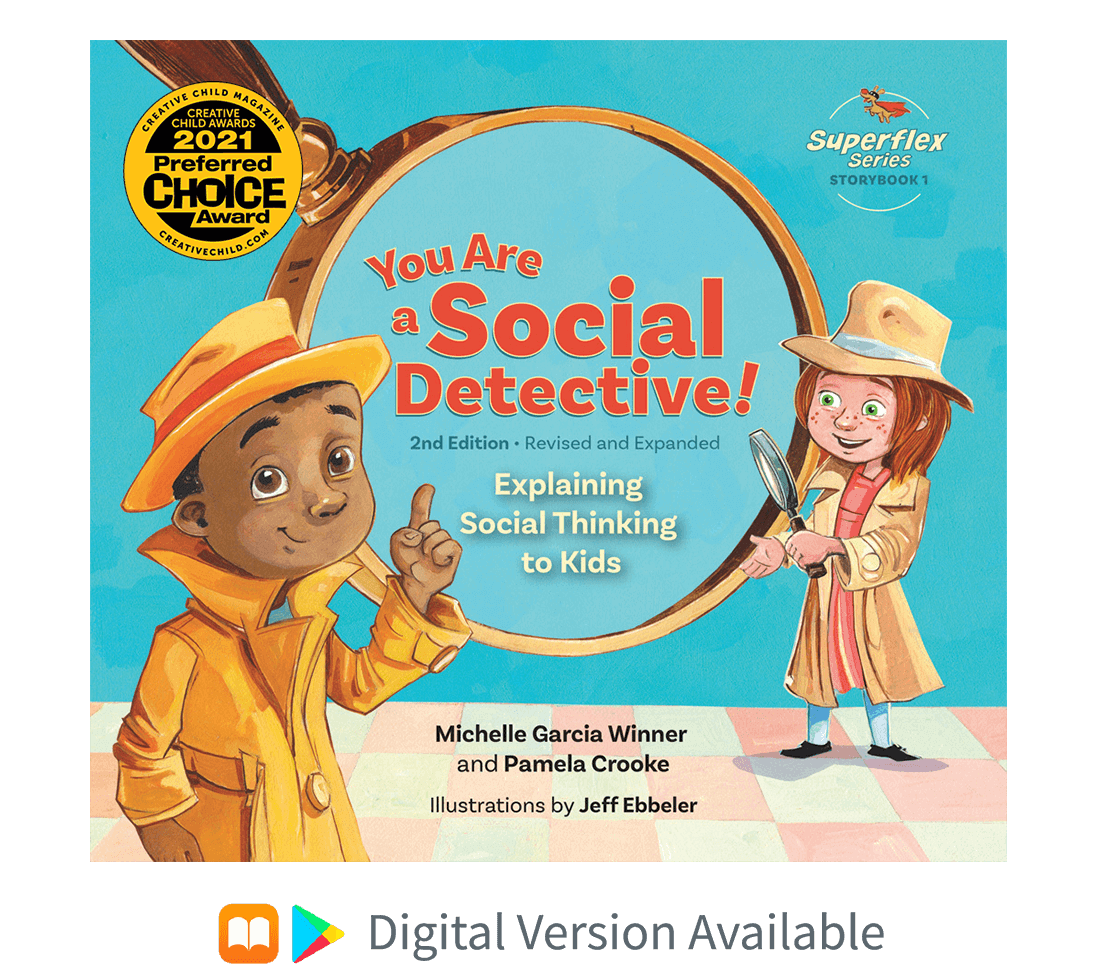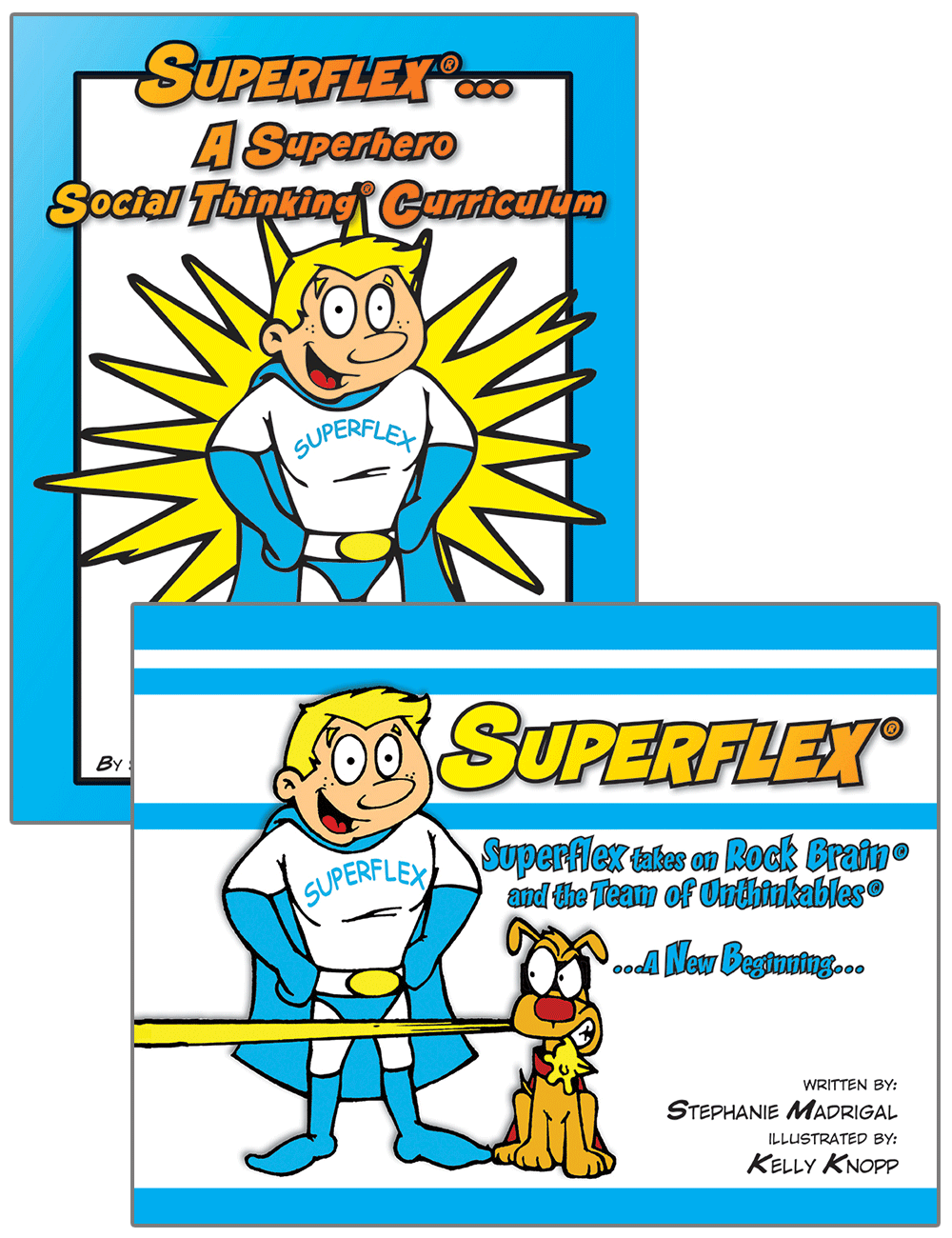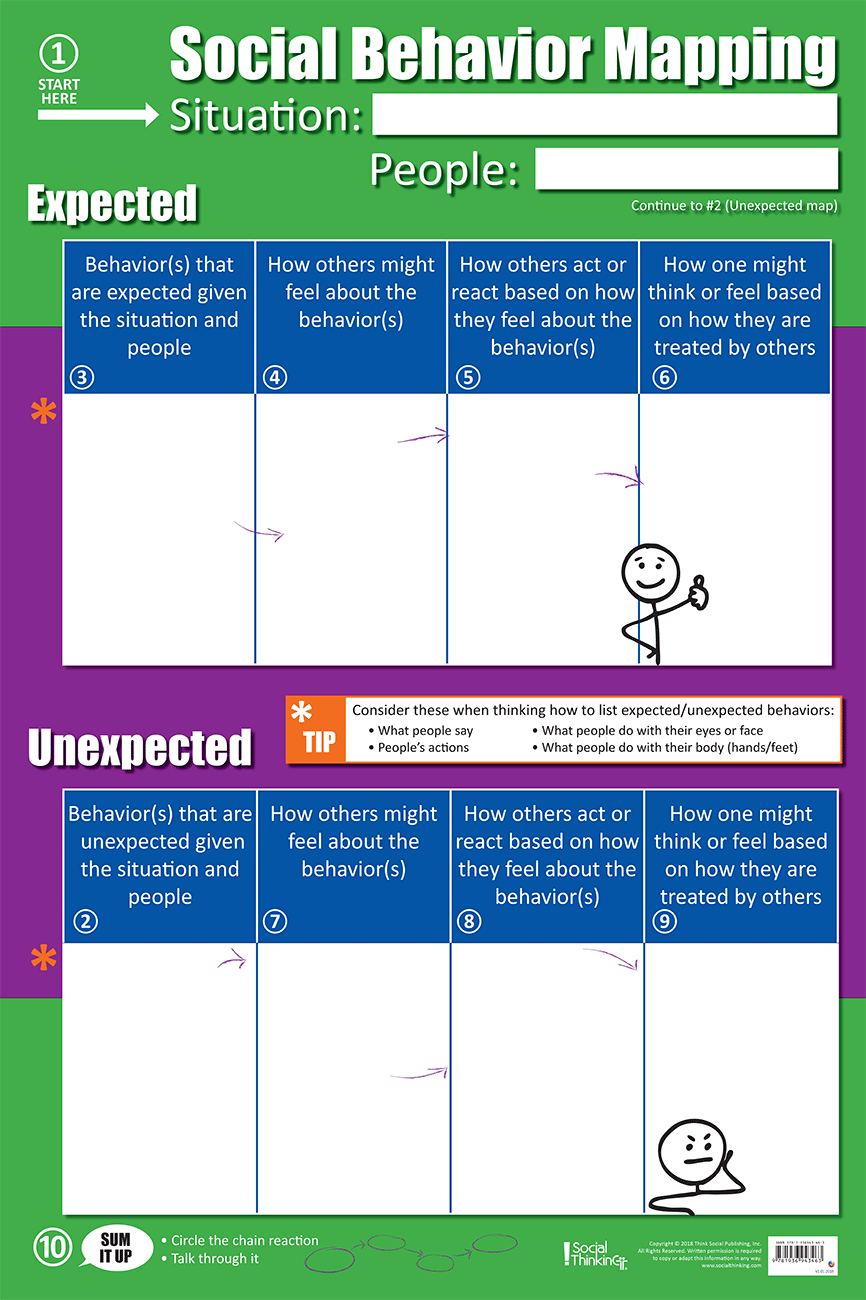Social Emotional Learning & Development
Components of the Social Thinking Methodology fit within the Social, Emotional, and Academic Learning (SEAL) framework by addressing joint attention, self-regulation, and perspective taking through stories and play.
While the motivational developmental tool used with a specific student(s) may change over the years of a child’s life due to developmental shifts, the core Social Thinking Treatment Frameworks and Strategies remain the same. For example, children may use the We Thinkers! when six years old, but by 10 years old they are learning about being a Social Detective and having Superflexible strategies to guide them and by 13 years old we may use Social Fortune or Social Fate to teach a more sophisticated view of the social world. The Motivational Developmental tools are for parents and professionals to use directly with the client/student/child.










 Complete access available at no cost
Complete access available at no cost Please note, this book requires purchase
Please note, this book requires purchase